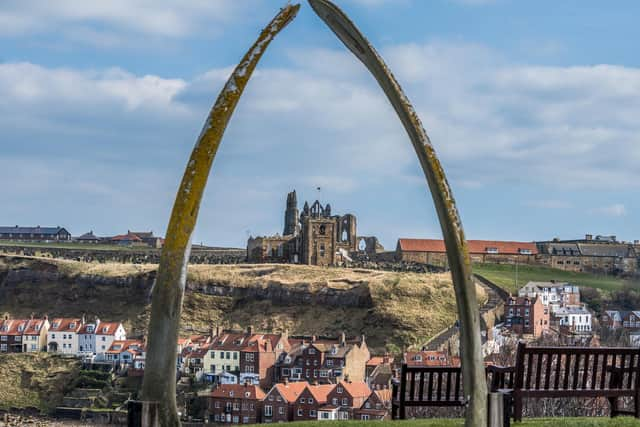How Whitby, Scarborough and other Yorkshire Coast seaside towns inspired the Brontës, Bram Stoker and Lewis Carroll
Experienced and novice storytellers are being encouraged to pick up their pens as National Writing Day comes around tomorrow.
From the Brontës to Kay Mellor, Keith Waterhouse to Sally Wainwright, this region has contributed a sizeable share of authors to the world of literature, screenwriting and beyond.
Advertisement
Hide AdAdvertisement
Hide AdHowever, the Yorkshire Coast alone is an example of just how inspirational the region has been to writers throughout the centuries.


Ever since Caedmon, who looked after the animals at Whitby Abbey back in the late 600s AD, turned Whitby into a medieval spot for pilgrims, people have travelled to the Yorkshire Coast seeking inspiration, including Bram Stoker for Dracula, JRR Tolkien for Lord of the Rings, Lewis Carroll for Alice in Wonderland and of course the Brontës.
Janet Deacon, tourism and culture manager at Scarborough Council and lead for Discover Yorkshire Coast, says: “There are few places left in the world with as many strange stories as the Yorkshire Coast. The captivating, unspoilt landscapes are populated by dragons, sea-monsters, mermaids, giants and shipwrecks, you can barely travel a mile without bumping into something and because of that it’s a place where the imagination just seems to run wild, full of dreams and nightmares – a glorious enigma where myth never died.”
With all this in mind, Discover Yorkshire Coast has put together 10 ways that writers can take inspiration from these seaside towns and villages.
Advertisement
Hide AdAdvertisement
Hide Ad1. Whitby is the famous birthplace of Dracula. Bram Stoker’s ground-breaking novel is not just a thrilling work of fiction, he actually drew on real life locations, characters and chronicles from Whitby, and was indebted to Whitby Library’s archives (now Whitby Museum).
2. Scarborough is home to Alan Ayckbourn, the Olivier and Tony Award winning playwright and acclaimed director. The prolific writer has penned more than 80 plays, many of which have been produced in London’s West End and New York, although has premiered at Scarborough’s Stephen Joseph Theatre, where he was artistic director for nearly 40 years.
3. Author Robin Jarvis was inspired by true stories from the area when he wrote his book The Whitby Witches.
4. “To boldly go where no man has gone before.” Those famous words uttered by Star Trek’s Captain Kirk have been likened to a journal entry made by Whitby’s Captain James Cook as he set out to explore uncharted lands beyond the horizon.
Advertisement
Hide AdAdvertisement
Hide Ad5. The Brontë sisters loved the Yorkshire Coast. While Charlotte’s favourite was Filey, Scarborough is the town where Anne Brontë has her final resting place, and is buried at St Mary’s Church.
6. Discover first-hand accounts of local sea-faring superstitions in Scarborough Maritime Heritage Centre.
7. Alice's Adventures in Wonderlandauthor Lewis Carroll wandered beaches and promenades in search and possibly took inspiration during his time in Whitby. Holidaymakers can still visit La Rosa Hotel on East Parade, where Carroll stayed.
8. Landmarks associated with the mythological giant Wade, including the vast Hole of Horcum, Blakey Topping, Wade’s Causeway and the castles of Pickering and Mulgrave, near Sandsend, can be toured.
Advertisement
Hide AdAdvertisement
Hide Ad9. The former home of Scarborough-born poet and critic Dame Edith Sitwell is now the Woodend Creative Artspace, a venue for events and workshops for locals to explore their artistic side.
10. Anyone interested in the coast’s creative history can learn more at the new Whitby Literary Festival, which is scheduled to happen in January next year.
For more information, visit www.discoveryorkshirecoast.com.